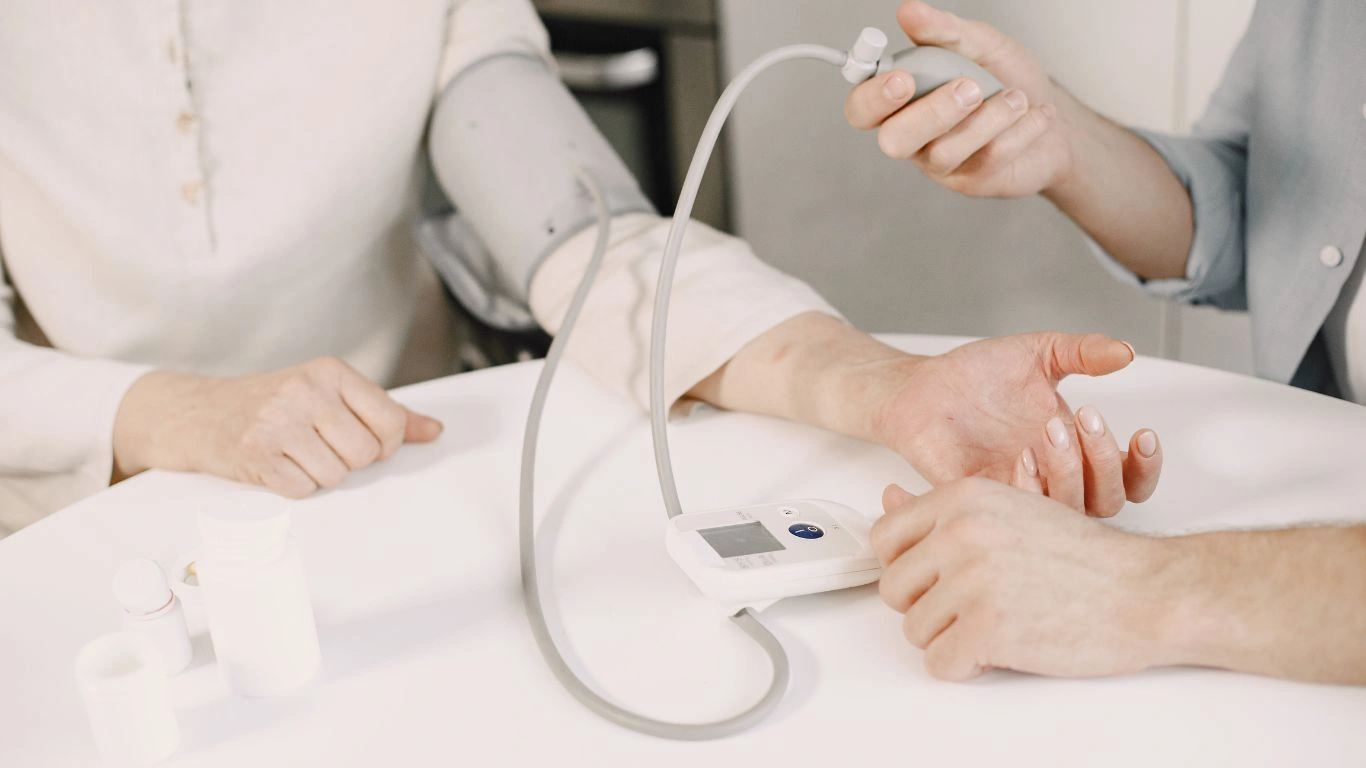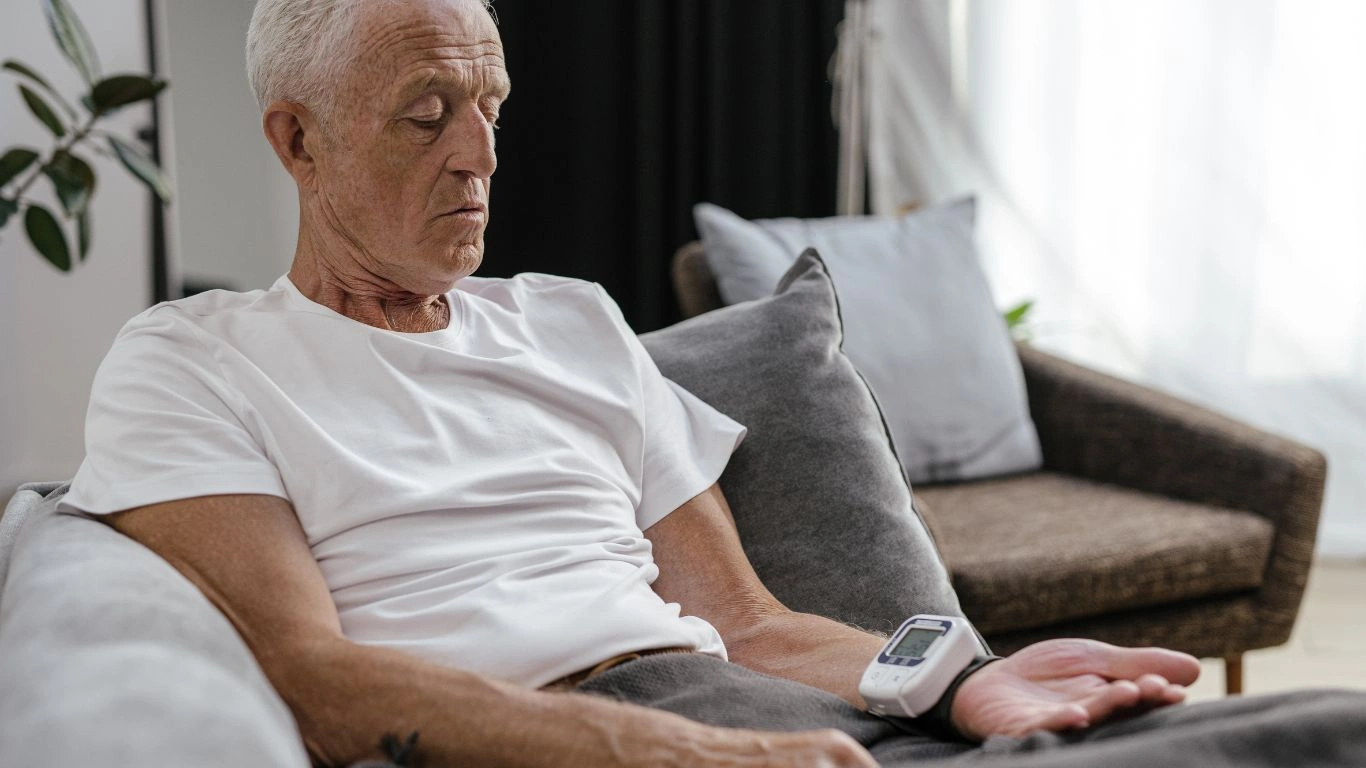Best Ways to Reduce Stress-Related Blood Pressure Spikes Effectively
As an Internal Medicine Physician specializing in hypertension management, I’ve seen first-hand how stress can wreak havoc on your blood pressure. It’s not uncommon for people to experience sudden spikes in their blood pressure after a stressful event, and this can be a real concern for those who already have high blood pressure or are at risk. So, if you’re wondering about the best ways to reduce stress-related blood pressure spikes, you’re in the right place! In this article, we’ll explore how stress affects your blood pressure, and I’ll share some of the most effective methods that I recommend to my patients for managing these stressful moments. Trust me, you don’t have to be a medical expert to implement these strategies, and they don’t require drastic lifestyle changes. Let’s dive into it!
How Stress Affects Your Blood Pressure
Before we jump into the best ways to reduce stress-related blood pressure spikes, it’s important to understand exactly how stress impacts your body. When you’re stressed, your body releases hormones like adrenaline and cortisol, which prepare you for the ‘fight or flight’ response. These hormones increase your heart rate and narrow your blood vessels, causing a temporary spike in blood pressure. While this is a natural response, frequent or prolonged stress can lead to consistent high blood pressure, which over time can damage your arteries, heart, and kidneys.
In my practice, I’ve had patients who are unaware of how much their daily stress is affecting their health. It might be a stressful job, family issues, or just the constant juggle of life’s demands. Over time, this builds up, and suddenly, their blood pressure readings are higher than they should be. That’s why managing stress is just as important as managing your blood pressure directly. Reducing stress-related spikes is crucial to preventing long-term damage to your cardiovascular health.
The Best Ways to Reduce Stress-Related Blood Pressure Spikes
1. Practice Deep Breathing Exercises
One of the easiest and most effective ways to reduce stress in the moment is to focus on your breathing. When you’re stressed, your breathing tends to become shallow and rapid, which can increase your blood pressure. Taking a few minutes to focus on deep breathing can help activate your body’s relaxation response, lowering your heart rate and blood pressure.
Try this simple deep breathing technique I often recommend to my patients: Find a quiet spot, sit comfortably, and close your eyes. Breathe in slowly through your nose for a count of four, hold your breath for a count of four, and then exhale slowly through your mouth for a count of six. Repeat this cycle for several minutes. It’s amazing how something so simple can help calm your nervous system and lower your stress levels.

2. Physical Activity – A Natural Stress Reliever
Exercise is another powerful tool for managing stress and blood pressure. You might think of it as a way to get in shape or lose weight, but it’s also one of the best ways to lower stress levels. When you engage in physical activity, your body releases endorphins – chemicals that improve your mood and help you feel relaxed. Regular exercise also helps reduce the levels of stress hormones in your body.
For my patients dealing with stress-related blood pressure spikes, I always recommend finding a form of exercise that they enjoy. It could be anything from a brisk walk in the park to a yoga class or even dancing. The key is consistency – aim for at least 30 minutes of moderate activity most days of the week. Trust me, you don’t have to run marathons to feel the benefits. Even light exercise can make a big difference in how your body handles stress.

3. Mindfulness and Meditation
Mindfulness and meditation are two techniques I often recommend for patients looking to reduce their stress. These practices help you focus on the present moment, which can be incredibly powerful when you’re feeling overwhelmed. In my experience, people who practice mindfulness regularly tend to handle stress much better and experience fewer blood pressure spikes.
To get started with mindfulness, try setting aside just 5-10 minutes each day to sit in a quiet space and focus on your breath. If your mind starts to wander, gently bring it back to your breath without judgment. Over time, you’ll notice that you’re able to stay calm and collected, even in stressful situations. Meditation apps like Calm or Headspace can also be really helpful for beginners.

4. Get Enough Sleep
It’s no secret that a lack of sleep can contribute to stress. But what many people don’t realize is that not getting enough rest can also contribute to high blood pressure. Poor sleep affects the balance of hormones in your body, making it harder for your body to recover from stressful situations. Plus, when you’re tired, you’re more likely to feel irritable and stressed out.
Getting quality sleep is essential for stress management and overall health. I always recommend setting a regular sleep schedule – go to bed and wake up at the same time each day, even on weekends. Create a relaxing bedtime routine, such as reading a book or taking a warm bath, to signal to your body that it’s time to wind down. And if you’re struggling with sleep, avoid caffeine or heavy meals close to bedtime, as they can interfere with your ability to fall asleep.
5. Stay Hydrated – It’s More Important Than You Think
Did you know that dehydration can actually cause your blood pressure to spike? I can’t tell you how often I’ve seen patients overlook this simple but critical aspect of stress management. When you’re dehydrated, your body has to work harder to maintain blood flow, which can lead to an increase in blood pressure. Plus, dehydration is often linked to heightened stress levels, as it can make you feel sluggish, irritable, and even anxious.
To keep stress-related blood pressure spikes in check, it’s essential to stay properly hydrated throughout the day. Water is your best friend here – aim to drink at least 8 glasses (about 2 liters) of water a day. Of course, if you’re engaging in physical activity or it’s particularly hot outside, you’ll need even more to replenish lost fluids. And don’t rely too much on sugary drinks or caffeine, as they can actually contribute to dehydration in the long run.

6. Limit Caffeine and Alcohol Intake
Caffeine and alcohol are two substances that many people turn to for a quick energy boost or stress relief. But both can actually have the opposite effect on your blood pressure. Caffeine, being a stimulant, can raise your heart rate and blood pressure temporarily. If you’re already stressed, this can make things worse. Similarly, alcohol can also cause a spike in blood pressure, especially if consumed in large quantities or frequently.
In my practice, I often advise patients to limit their caffeine intake, especially during times of high stress. Instead of reaching for that extra cup of coffee, try drinking herbal tea, which has calming properties. As for alcohol, while a glass of wine here and there is generally fine for most people, regular or heavy drinking can contribute to long-term blood pressure issues. Moderation is key!
7. Strengthen Your Support System
When it comes to managing stress, having a strong support system can make all the difference. Whether it’s family, friends, or even a therapist, talking through your stressors with someone you trust can help alleviate anxiety and prevent those blood pressure spikes. In fact, studies have shown that having a strong emotional support system is linked to lower blood pressure and improved overall health.
I’ve seen patients who have dramatically improved their blood pressure by simply confiding in a friend or family member about what’s bothering them. Sometimes, just voicing your concerns can lighten the mental load. So, don’t hesitate to reach out for support when you need it. And remember, it’s not just about seeking help during times of crisis. Regularly checking in with your loved ones and maintaining those relationships can help you build resilience against stress.

8. Practice Time Management
If you often find yourself overwhelmed by a never-ending to-do list or constantly running from one task to the next, stress might be sneaking up on you more than you realize. Poor time management can lead to feelings of chaos and anxiety, which in turn can trigger blood pressure spikes. But here’s the good news: you can take control of your time and reduce stress with just a few practical strategies.
One thing I encourage my patients to try is prioritizing tasks. Break down your to-do list into smaller, manageable chunks and focus on one thing at a time. Try not to multitask – it may seem like a good way to get more done, but it can actually increase stress and lower your productivity. A simple method I recommend is the Pomodoro Technique, where you work for 25 minutes, then take a 5-minute break. These small periods of focus followed by short breaks can make a big difference in reducing stress levels throughout the day.

9. Get Out in Nature
Another powerful way to reduce stress is to simply spend some time outside. I’m not talking about just a quick walk around the block – I mean getting into nature. Whether it’s a hike in the woods, a stroll in a park, or even just sitting in your backyard, nature has an incredible ability to calm the mind and lower blood pressure. I’ve always found that being outside can give you a new perspective on things, which can help you manage stress more effectively.
In my personal experience, I’ve recommended nature walks to countless patients, and the results speak for themselves. The combination of fresh air, natural scenery, and the physical activity of walking all work together to reduce stress. Plus, studies have shown that spending time in nature lowers cortisol levels (the stress hormone) and can even help improve your mood. If you live near a park or any green space, make it a habit to visit regularly – even a short daily walk can have long-lasting benefits for both your physical and mental health.
10. Consider Stress-Reducing Supplements
Sometimes, even with the best intentions and practices, stress can still take its toll on our bodies. When this happens, some people may consider supplements to help manage their stress levels. While it’s always best to consult with a healthcare provider before adding any supplements to your routine, there are a few that have been shown to help with stress reduction and lowering blood pressure.
One supplement I frequently recommend to my patients is magnesium. Magnesium plays a crucial role in regulating blood pressure and promoting relaxation. Studies have shown that magnesium supplementation may help lower both systolic and diastolic blood pressure, especially in people with hypertension. Another popular supplement is ashwagandha, an adaptogenic herb that has been used for centuries to help the body adapt to stress. Some research suggests that ashwagandha can significantly reduce cortisol levels and improve overall stress tolerance.
However, as with any supplement, it’s important to use them cautiously and under the guidance of a healthcare professional. Remember that supplements should never replace a healthy diet or lifestyle, but they can certainly complement other stress management techniques when used properly.

11. Limit Screen Time and Practice Digital Detox
In our modern world, we’re constantly bombarded with screens – whether it’s our phone, computer, or TV. While technology has its benefits, excessive screen time can contribute to stress in several ways. First, constant exposure to social media, news, and emails can overwhelm us with information, making it harder to unwind and relax. Second, the blue light emitted from screens can interfere with sleep, leading to more stress the next day.
As someone who has worked in healthcare for many years, I’ve seen the negative impact that constant digital consumption has on mental well-being. That’s why I often encourage patients to practice a “digital detox,” especially in the evenings. Try setting aside at least an hour before bed to unplug from screens. Instead, read a book, listen to calming music, or engage in a relaxing hobby. You might be surprised at how much this simple shift can help reduce your stress levels and improve your sleep quality.
Additionally, limiting screen time during the day can help reduce mental fatigue and enhance your overall sense of well-being. Give it a try, and see how your stress levels change as you give your brain a much-needed break from constant digital stimulation.
12. Stay Positive – Cultivate a Positive Mindset
It may sound cliché, but maintaining a positive outlook on life really can make a difference in how we handle stress. Having a positive mindset helps your body stay more resilient in the face of adversity, and it can even help reduce the physiological impact of stress on your heart and blood vessels. I’ve often shared with my patients that a shift in perspective can be just as powerful as any medication or lifestyle change.
One practice I suggest is to keep a gratitude journal. Each day, take a few minutes to write down at least three things you’re grateful for. Focusing on the positive aspects of your life, even on tough days, can significantly reduce stress and improve your mood. Another simple but effective technique is practicing affirmations. Telling yourself positive statements like “I am in control of my stress” or “I am strong and capable” can help reframe your thoughts and put you in a more peaceful state of mind.

13. Seek Professional Help When Needed
Finally, if you find that managing stress on your own feels impossible, don’t hesitate to reach out to a mental health professional. Therapies like cognitive behavioral therapy (CBT) and relaxation techniques can be incredibly effective at helping you manage stress and, in turn, reduce blood pressure. As a healthcare professional, I can’t stress enough how important it is to seek help if stress becomes overwhelming. There is no shame in reaching out for support, and sometimes, having the guidance of a skilled therapist can make all the difference.
Many people feel more comfortable managing their stress on their own, but when it starts to impact your health, it’s worth exploring professional help. Therapy can help you uncover the root causes of your stress, develop healthy coping strategies, and improve your overall mental and physical well-being.
References
Disclaimer
The information provided in this article is for general informational purposes only and is not intended to diagnose, treat, or replace medical advice from a qualified healthcare professional. Always consult your doctor or healthcare provider before making any changes to your diet, exercise routine, or treatment plan. The author is not liable for any health-related issues that may arise from using the information provided in this article.

Dr. Gwenna Aazee is a board-certified Internal Medicine Physician with a special focus on hypertension management, chronic disease prevention, and patient education. With years of experience in both clinical practice and medical writing, she’s passionate about turning evidence-based medicine into accessible, actionable advice. Through her work at Healthusias.com, Dr. Aazee empowers readers to take charge of their health with confidence and clarity. Off the clock, she enjoys deep dives into nutrition research, long walks with her rescue pup, and simplifying medical jargon one article at a time.






